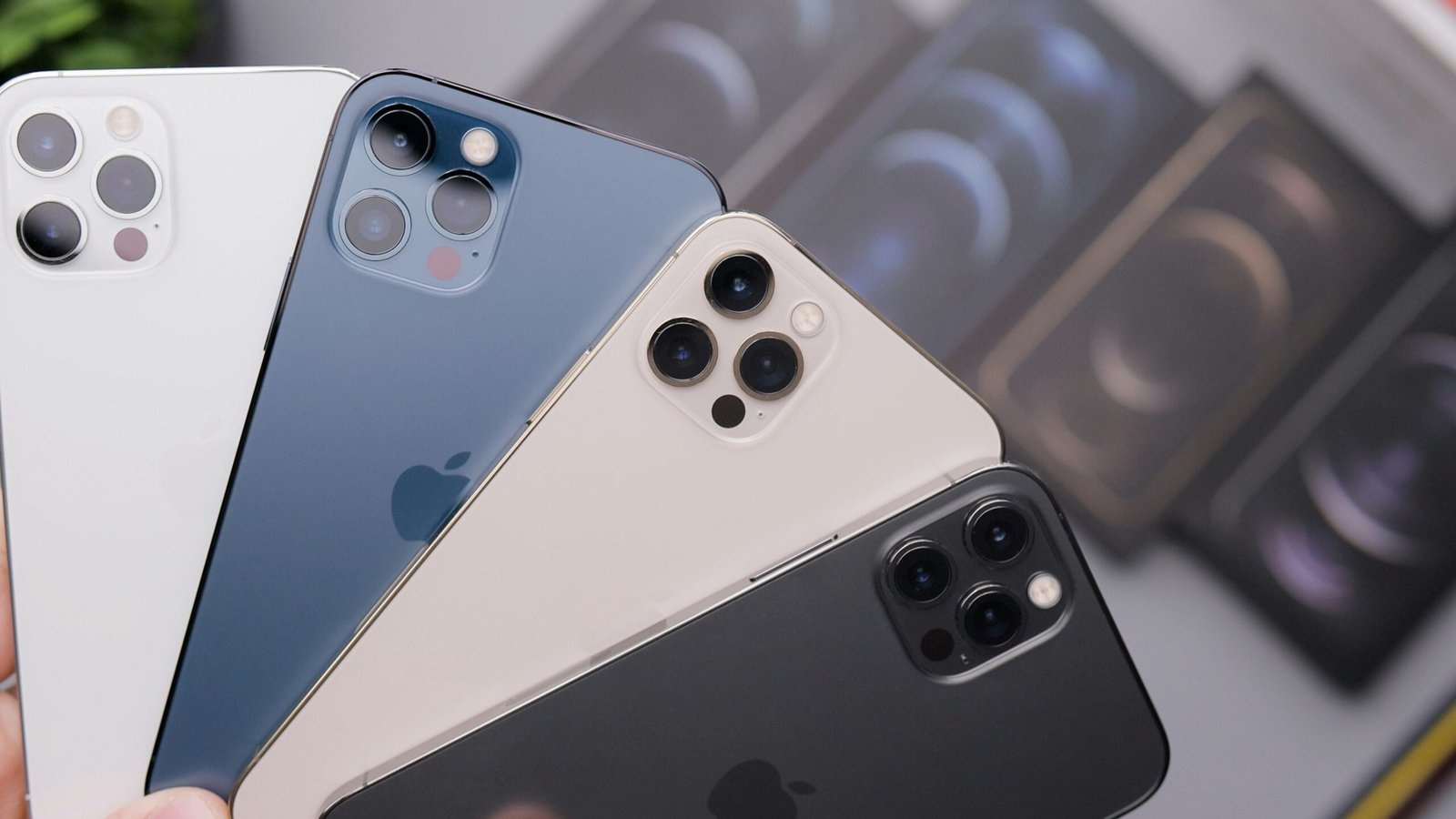This website uses cookies so that we can provide you with the best user experience possible. Cookie information is stored in your browser and performs functions such as recognising you when you return to our website and helping our team to understand which sections of the website you find most interesting and useful.

Smartphones with Artificial Intelligence
In recent years, smartphones have become an essential part of our daily lives. They have revolutionized the way we communicate, work, and entertain ourselves. With advancements in technology, smartphones are now equipped with artificial intelligence (AI) capabilities, making them even smarter and more intuitive.
AI-powered smartphones have revolutionized the way we interact with our devices. With the integration of artificial intelligence, smartphones have become more than just communication devices; they have become personal assistants that can anticipate our needs and provide tailored recommendations.
One area where AI has made a significant impact is in photography. AI-powered cameras in smartphones can analyze the scene, detect objects, and adjust the settings accordingly to capture the perfect shot. They can even enhance the image quality by reducing noise and improving colors. This technology has made it easier for users to take professional-looking photos without the need for extensive knowledge of photography techniques.
Furthermore, AI has also improved the security features of smartphones. Facial recognition technology, powered by AI algorithms, allows users to unlock their devices with just a glance. This feature not only provides convenience but also enhances the security of the device, as it is difficult to replicate a person’s unique facial features.
In addition to photography and security, AI has also enhanced the performance of smartphones. AI algorithms can analyze the usage patterns of the user and optimize the device’s performance accordingly. This means that the smartphone can allocate resources efficiently, ensuring smooth multitasking and faster app loading times.
Another area where AI has made a significant impact is in language translation. AI-powered smartphones can translate text or speech from one language to another in real-time. This feature has made it easier for users to communicate with people from different countries and cultures, breaking down language barriers and fostering global connectivity.
Overall, the rise of AI in smartphones has transformed these devices into intelligent companions that can understand and adapt to our needs. From photography to security to performance, AI has enhanced every aspect of smartphone technology, making our lives easier and more convenient. As AI continues to evolve, we can expect even more exciting advancements in the future.
AI-Powered Cameras
AI has also revolutionized smartphone photography. With AI-powered cameras, smartphones can now capture stunning photos and videos with minimal effort. These cameras use machine learning algorithms to analyze the scene, adjust settings, and enhance the quality of the image.
AI cameras can recognize different objects and scenes, such as landscapes, food, pets, and people. They can automatically optimize the settings to capture the best possible shot. For example, if you’re taking a photo of a sunset, the AI camera will adjust the exposure and color balance to capture the vibrant colors of the sky.
Furthermore, AI cameras can also detect and remove unwanted objects from photos. If there’s a photobomber in the background or an unwanted object in the frame, the AI camera can intelligently remove it, resulting in a cleaner and more professional-looking photo.
But the capabilities of AI-powered cameras don’t stop there. These cameras can also provide real-time feedback and suggestions to help users take better photos. For instance, if you’re trying to capture a group photo, the camera can detect if someone blinked and suggest taking another shot to ensure everyone has their eyes open. It can also analyze the composition of the photo and provide guidance on how to improve it, such as suggesting to adjust the framing or change the angle.
Moreover, AI cameras can assist with post-processing tasks. They can automatically apply filters and adjustments to enhance the image, saving users time and effort. These cameras can also recognize faces and automatically tag people in photos, making it easier to organize and search for specific images.
Another exciting feature of AI cameras is their ability to create stunning bokeh effects. By analyzing the depth of the scene, the camera can blur the background while keeping the subject in focus, resulting in professional-looking portraits. This feature was previously only available in high-end DSLR cameras, but with AI, it has become accessible to smartphone users.
As AI continues to advance, we can expect even more impressive features in smartphone cameras. From advanced image recognition to augmented reality overlays, AI-powered cameras are transforming the way we capture and share our memories.
Furthermore, AI can revolutionize the way we interact with our smartphones. Natural language processing (NLP) algorithms enable smartphones to understand and respond to voice commands, making it easier and more convenient for users to perform tasks. Whether it’s sending a text message, making a phone call, or setting a reminder, AI-powered smartphones can understand spoken instructions and execute them accurately.
Moreover, AI can assist users in making informed decisions by providing personalized recommendations. For instance, if you are planning a vacation, your smartphone can analyze your preferences, budget, and travel history to suggest destinations, accommodations, and activities that align with your interests. This level of personalization can greatly enhance the user experience and save time and effort in researching and planning.
AI-powered smartphones can also improve accessibility for individuals with disabilities. By leveraging computer vision technology, smartphones can assist visually impaired users by describing their surroundings, reading out text, and recognizing objects. Additionally, AI algorithms can adapt the user interface based on individual needs, making it easier for users with motor impairments to navigate and interact with their devices.
Another area where AI can enhance the user experience is in photography. Smartphone cameras equipped with AI algorithms can automatically adjust settings, such as exposure and focus, to capture the best possible shot. Additionally, AI can assist in image recognition, allowing users to easily search for specific photos based on their content. Whether it’s finding a picture of a specific landmark or identifying a particular object, AI-powered smartphones can make organizing and retrieving photos a breeze.
Overall, AI has the potential to transform smartphones into intelligent personal assistants that understand and cater to our individual needs. By analyzing data, providing personalized recommendations, enhancing accessibility, and improving photography capabilities, AI-powered smartphones can deliver a truly personalized and seamless user experience.
Additionally, the future of AI in smartphones holds great potential in the field of cybersecurity. With the increasing number of cyber threats and attacks, AI can help smartphones become more secure and resilient. AI algorithms can continuously analyze patterns and detect anomalies in real-time, allowing smartphones to proactively protect against malicious activities.
Moreover, AI can revolutionize the way we interact with our smartphones through gesture recognition technology. Imagine being able to control your smartphone with simple hand gestures, eliminating the need for physical touch or voice commands. This technology can be particularly useful in situations where touchscreens are not accessible or when users have limited mobility.
Furthermore, the integration of AI in smartphones can greatly enhance the camera capabilities. AI algorithms can improve image processing, enabling smartphones to capture stunning photos with enhanced clarity, color accuracy, and low-light performance. Additionally, AI can also assist in real-time object recognition, allowing users to identify objects and receive relevant information instantly.
Another exciting development in the future of AI in smartphones is the potential for personalized user experiences. AI can analyze user behavior, preferences, and habits to provide tailored recommendations and suggestions. From suggesting personalized playlists to predicting the next app or feature a user might need, AI can make smartphones truly intuitive and adaptive to individual users.
Furthermore, AI-powered smartphones can also have a significant impact on transportation and navigation. With advanced AI algorithms, smartphones can optimize routes, predict traffic patterns, and provide real-time updates to users. This can greatly improve commuting experiences, saving time and reducing congestion on the roads.
In conclusion, the future of AI in smartphones is incredibly promising. From enhanced natural language processing to augmented reality, healthcare, cybersecurity, gesture recognition, camera capabilities, personalized user experiences, and transportation, AI has the potential to revolutionize every aspect of smartphone technology. As we continue to push the boundaries of innovation, we can expect smartphones to become even smarter, more intuitive, and seamlessly integrated into our daily lives.
RELATED POSTS
View all



